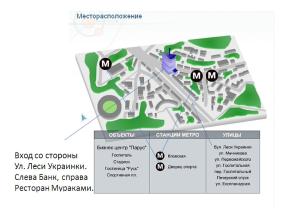Forum
Details
EUROATLANTIC FORUM
UKRAINE AND THE EU ON THE BRINK OF THE NEW ASSOCIATION AGREEMENT: FREE TRADE, ENERGY SECURITY AND DEMOCRACY
January 25-26th, 2012 | PARUS Business Centre, vul. Mechnikova 2a, Kyiv
entry: Boulevard Lesi Ukrainki
PROGRAMME
Wednesday, January 25th, 2012
19:00OPENING
High Level Expert Opening Session, at the same time Session of the Club of the Konrad-Adenauer-Stiftung
Moderation: Nico Lange, Head of the Kyiv Office of Konrad-Adenauer-Stiftung in Ukraine
Pavlo Klimkin, Deputy Minister of Foreign Affairs of Ukraine
F. Stephen Larrabee, RAND, Distinguished Chair in European Security, Washington
Friedbert Pflüger, Executive Director, European Centre for Energy and Resource Security, King’s College London
Petro Poroshenko, Former Minister of Foreign Affairs of Ukraine
- What are the strategic implications of the EU-Ukraine Association Agreement for the European Union and for Ukraine?
- How do domestic developments in Ukraine influence the integration into the EU?
- How should the EU approach the question of Energy security with regards to Ukraine?
- What do Association and DCFTA of Ukraine mean for Russia-Ukraine and EU-Russia relations?
- What is the strategic outlook for developments in the European Union and the Eastern Neighborhood for 2012?
Thursday, January 26th, 2012
09:00REGISTRATION AND COFFEE
09:30OPENING
Nico Lange, Head of the Kyiv Office of Konrad-Adenauer-Stiftung in Ukraine
KEY NOTE SPEECH
José Manuel Pinto Teixeira, Head of Delegation of the European Union to Ukraine
10:00-11:30PANEL 1: EU-Ukraine Relations
Moderation: Oleh Rybachuk, Head of the Civil Expert Council at the Ukrainian Part of the EU-Ukraine Cooperation Committee, Former Deputy Primer Minister for European Integration
Michael Borg-Hansen, Ambassador of the Royal Danish Embassy to Ukraine
Vsevolod Chentsov, Director of the Department for European Union, Foreign Ministry of Ukraine
Borys Tarasyuk, Chair of the Committee for European Integration, Ukrainian Parliament
Kataryna Wolczuk, Deputy Director of the Centre for Russian and East European Studies, University of Birmingham
- What is the state of affairs between the EU and Ukraine after the summit in December 2011 and the delay of the Association Agreement?
- How can the process of initialing, signing and ratification be continued?
- How can the EU influence the development of rule of law and democracy within Ukraine?
- What will be the influence by the parliamentary elections and Euro 2012?
- How can civil society participate and have influence on the process?
12:00-13:30 PANEL 2: EU-Ukraine Association Agreement: Prospects of Implementation
Moderation: Janusz Bugajski, Director of the New European Democracies Project at the Center for Strategic and International Studies, USA
Yevgen Perelygin, Head of Department of European Integration of the Administration of the President of Ukraine
Igor Popov, First Deputy Head of the Agency for Civil Service, Ukraine
Hannes Schreiber, Head of Political Section, Delegation of the European Union to Ukraine
Oleksandr Sushko, Institute for Euro-Atlantic Cooperation, Ukraine
Viktoria Humenyuk, Civil Expert Council at the Ukrainian Part of the EU-Ukraine Cooperation Committee
- What are the legally binding commitments for Ukraine within the new agreement?
- What kind of legislation needs to be passed and are there stable majorities in favor?
- Is the Ukrainian administration ready to implement the commitments?
- What timeframes and roadmaps for implementation of the agreement’s chapters are desirable and realistic?
- Who are the major stakeholders from economy, society and administration and how will the influence the implementation process?
- How can the implementation of the agreement be monitored and measured?
15:00-16:30PANEL 3: Energy Community, Energy Dialogue and Energy Security
Moderation: Mykhailo Honchar, Centre “NOMOS”
Slavtcho Neykov, Director of the Energy Community Secretariat, Vienna
Oleksandr Chalyi, President of Grant Thornton Ukraine
Jonas Grätz, researcher at the Center for Security Studies at the Swiss Federal Institute of Technology Zurich
- What are the main factors of EU-Ukraine Energy cooperation within the new agreement and inside of the European Energy Community?
- Should the EU be part of a consortium concerning the Ukrainian Gas Transit System?
- What are the perspectives for Russia-Ukraine relations in the gas sector and what kind of impact do they have on EU-Ukraine relations?
- How can Ukraine improve European Energy Security?
17:00-18:30PANEL 4: Economic Development, Business Relations and Business Environment
Moderation: Neil Buckley, Eastern Europe Editor, Financial Times
Iryna Akimova, First Deputy Chief of Administration of President of Ukraine (tbc)
Valeryj Piatnytskyj, Government Commissioner for European Integration, Ministry of Economic Development and Trade of Ukraine
Marius Vismantas, Regional Coordinator for Ukraine, Belarus and Moldova, Financial and Private Sector Development, World Bank
Ihor Burakovsky, Director of the Institute for Economic Research and Policy Consulting, Kyiv
- What are the economic gains and losses for Ukraine and the EU over short-, mid- and long term perspective through the DCFTA?
- What major changes for Ukrainian business will the DCFTA bring?
- Is Ukrainian business ready to be competitive within the DCFTA?
- What are the expectations of foreign investors?
- Which priorities for implementation of the DCFTA should be set from the perspective of Ukrainian economy?
19:00RECEPTION






